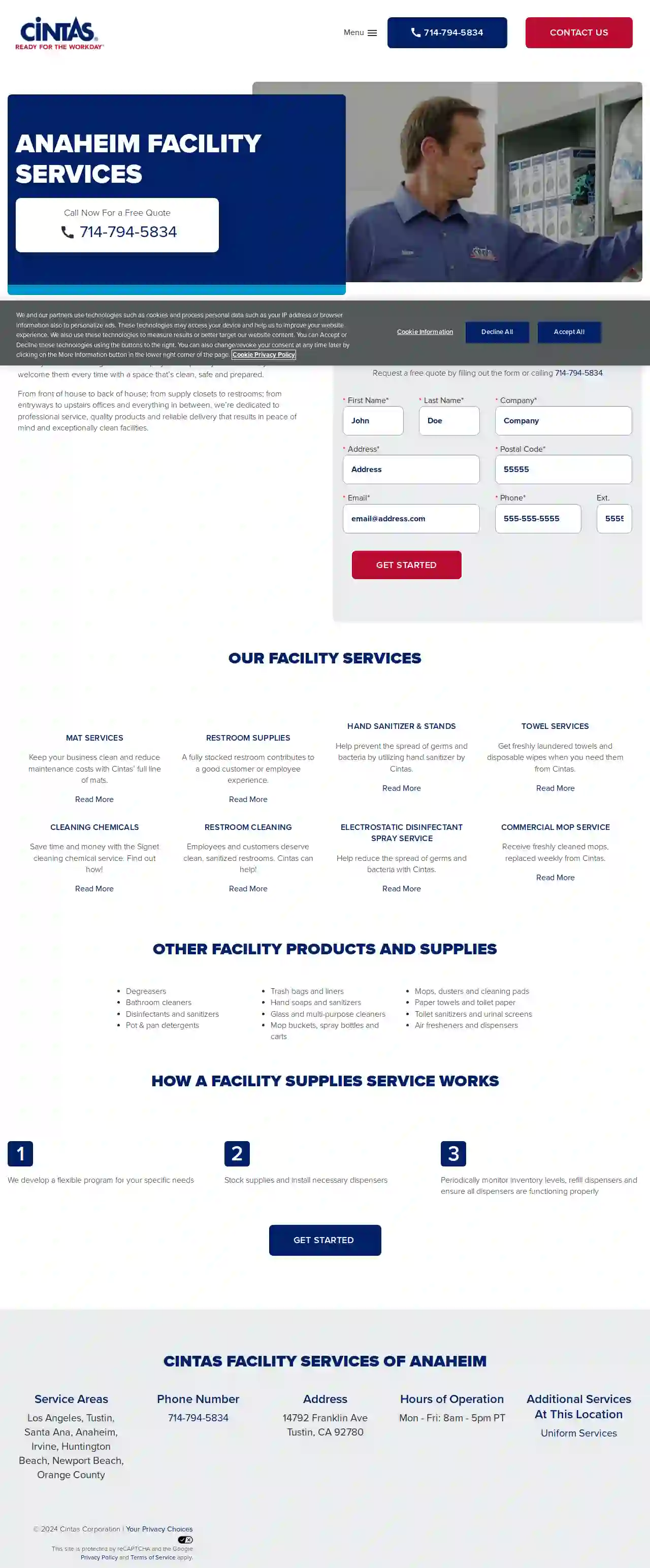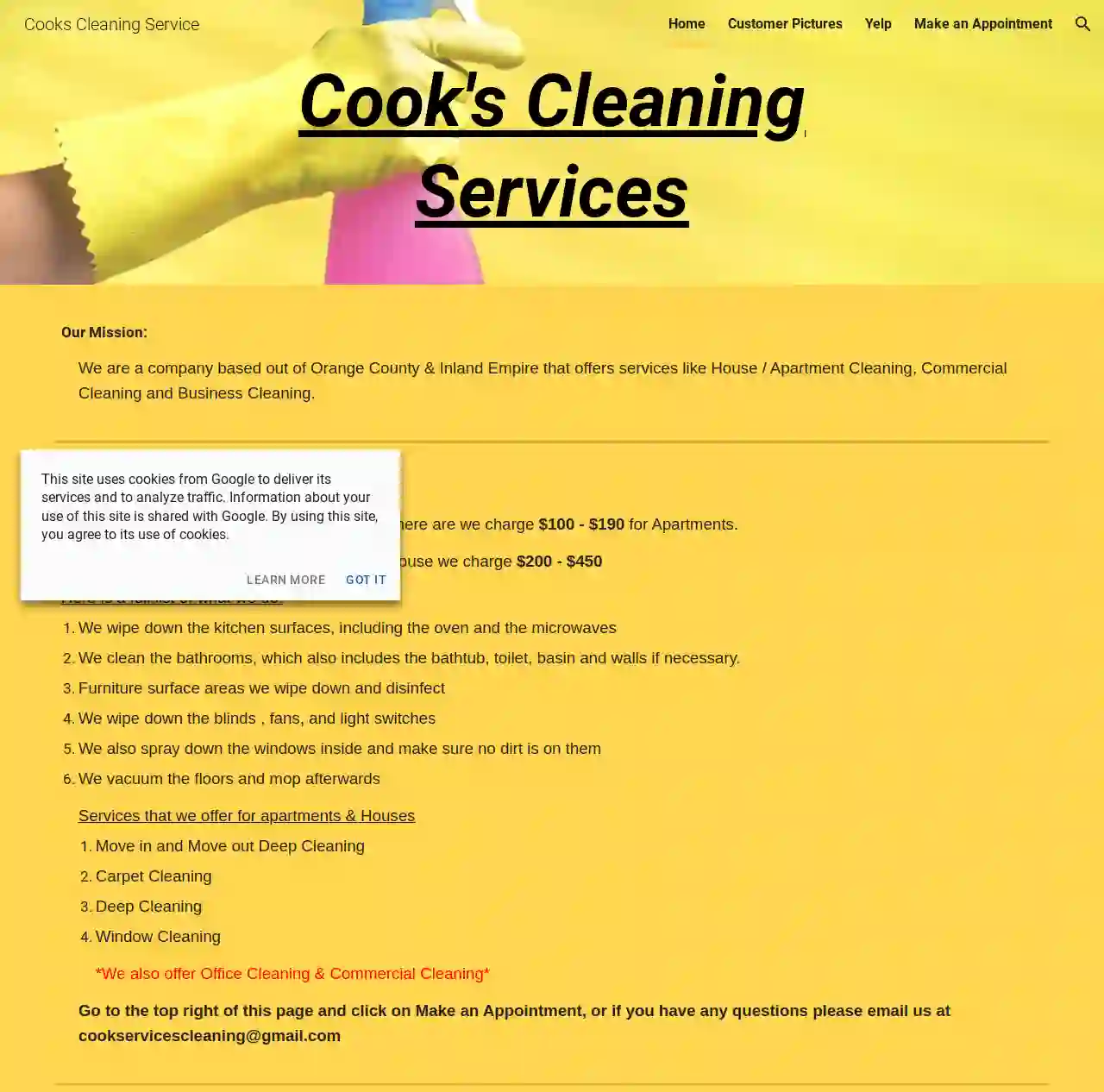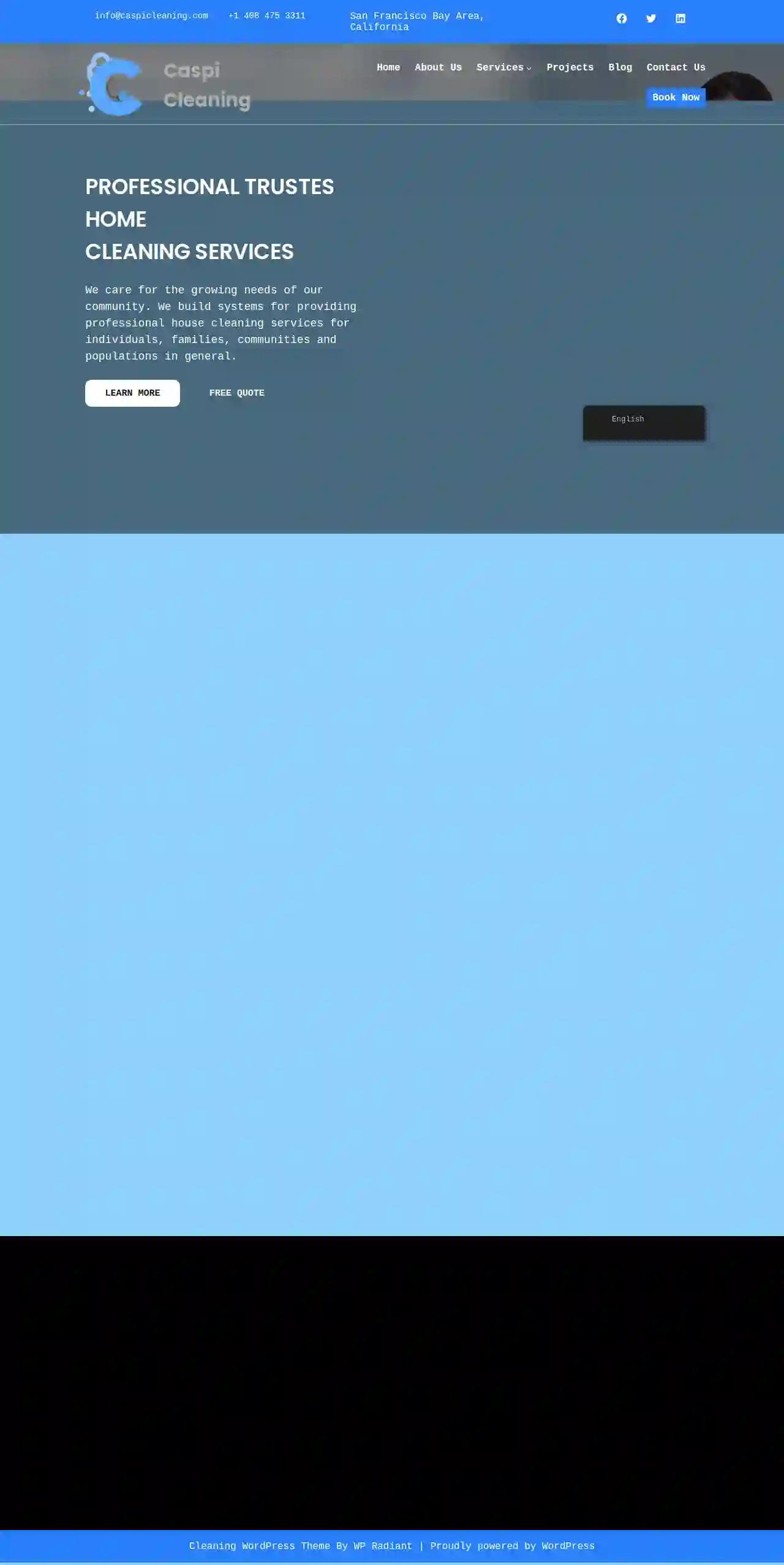Cleaning Services Rancho Cordova
Find Cleaning Services in Rancho Cordova
Receive 3 FREE Home Cleaning quotes for your project today! Compare profiles, reviews, accreditations, portfolio, etc... and choose the best offer.

Bio-One of Modesto
519 reviews123 Main St, Modesto, 95350, USAt Bio-One of Modesto, we're a leader in crime scene cleanup and biohazard decontamination services in Modesto. Our team is trained, experienced, and dedicated to helping our community. We value professionalism, discretion, expertise, and care and compassion for everyone involved. Our mission is simple: help first, business second. We're passionate about making a difference in our community and thrive by going above and beyond for our clients. Our owner, Latrice Gonzalez, is a native of Oakland, CA, and has a background in the insurance industry. She's compassionate, caring, and considerate, making Bio-One the perfect fit for her. We're a 24/7 service, and we answer the call anytime, day or night. We're here to help you through tough situations, and we guarantee complete discretion, collaboration with your insurance companies, and a thorough cleaning process.
- Services
- Why Us?
- Accreditations
- Our Team
- Testimonials
- Gallery
Get Quote- Al
Alliance Carpet & Tile Cleaning
59 reviewsMurrieta, US- Services
- Why Us?
Get Quote 
Glean LLC
521 reviewsRichmond, US- Services
- Why Us?
Get Quote
Elite Commercial Cleaning
51 reviewsLos Angeles, US- Services
- Why Us?
Get Quote
Customized Custodial Services
56 reviewsBakersfield, US- Services
- Why Us?
Get Quote
Cintas Facility Services
510 reviewsOrange, US- Services
- Why Us?
Get Quote
Deluxe Pro Cleaning LLC
550 reviewsSunnyvale, US- Services
- Why Us?
Get Quote
Cook's Cleaning Services
51 reviewsOrange, US- Services
- Why Us?
Get Quote
Profectus Commercial Cleaning
51 reviewsRichmond, US- Services
- Why Us?
Get Quote
Caspi Cleaning Services
515 reviewsSunnyvale, US- Services
- Why Us?
Get Quote
Over 60,241+ Janitorial Contractors on our directory
Our cleaning pros operate in Rancho Cordova & beyond!
CleaningMatch has curated and vetted the Best Cleaning Services in and around Rancho Cordova. Find a top & trustworthy contractor today.
Frequently Asked Questions About Cleaning Services
- Regular dusting: Dust frequently using microfiber cloths or a duster. Pay attention to surfaces that attract dust, such as shelves, electronics, and furniture.
- Vacuuming: Vacuum carpets and rugs regularly using a vacuum cleaner with a HEPA filter to trap dust mites and allergens.
- Air Purifier: Consider using an air purifier to remove dust particles and allergens from the air.
- Reduce Clutter: Clutter provides more surfaces for dust to settle. Declutter regularly to minimize dust traps.
- Window Treatments: Wash or vacuum window treatments, such as curtains or blinds, regularly to remove dust buildup.
- Bedding: Wash bedding, including sheets, pillowcases, and blankets, weekly in hot water to remove dust mites.
- Doormats: Place doormats at entrances to trap dirt and dust from shoes before they enter your home.
- Online Directories: Use online directories like CleaningMatch to search for cleaning services in your area. Filter your search results by the specific cleaning type you need.
- Search Engines: Use search engines like Google to find cleaning services specializing in your desired cleaning type. For example, search for 'post-construction cleaning services near me' or 'eco-friendly cleaning services in [city name].'
- Ask for Referrals: Ask friends, family, neighbors, or colleagues if they know of any reputable cleaning services specializing in your desired cleaning type.
- Check Company Websites: Visit the websites of cleaning services in your area to see if they list the specific cleaning type you need among their services.
- Contact Companies Directly: Contact cleaning companies directly to inquire about their specialization in your desired cleaning type.
- Regular Sweeping or Dust Mopping: Sweep or dust mop hardwood floors daily to remove dust, dirt, and debris.
- Vacuuming: Vacuum hardwood floors weekly using a vacuum cleaner with a hardwood floor attachment to avoid scratches.
- Damp Mopping: Damp mop hardwood floors with a hardwood floor cleaner as needed. Avoid excessive water, as it can damage the wood.
- Prevent Scratches: Place felt pads under furniture legs to prevent scratches. Avoid dragging heavy objects across the floor.
- Avoid Harsh Cleaners: Do not use harsh chemicals, abrasive cleaners, or furniture polish on hardwood floors.
- Professional Cleaning: Consider hiring a professional hardwood floor cleaning service for deep cleaning and refinishing as needed.
How do I prevent dust from accumulating in my home?
By implementing these preventive measures, you can significantly reduce dust accumulation and maintain a cleaner and healthier home.
Do I need to provide cleaning supplies for the cleaning service?
If you have specific preferences for cleaning products, such as eco-friendly or hypoallergenic options, communicate those to the cleaning service. They may accommodate your requests or allow you to provide your preferred supplies.
How do I find a cleaning service that specializes in [specific type of cleaning]?
By using these methods, you can find a qualified cleaning service that meets your specific cleaning needs.
What are some tips for cleaning hardwood floors?
By following these tips, you can keep your hardwood floors looking beautiful for years to come.
How do I prevent dust from accumulating in my home?
- Regular dusting: Dust frequently using microfiber cloths or a duster. Pay attention to surfaces that attract dust, such as shelves, electronics, and furniture.
- Vacuuming: Vacuum carpets and rugs regularly using a vacuum cleaner with a HEPA filter to trap dust mites and allergens.
- Air Purifier: Consider using an air purifier to remove dust particles and allergens from the air.
- Reduce Clutter: Clutter provides more surfaces for dust to settle. Declutter regularly to minimize dust traps.
- Window Treatments: Wash or vacuum window treatments, such as curtains or blinds, regularly to remove dust buildup.
- Bedding: Wash bedding, including sheets, pillowcases, and blankets, weekly in hot water to remove dust mites.
- Doormats: Place doormats at entrances to trap dirt and dust from shoes before they enter your home.
By implementing these preventive measures, you can significantly reduce dust accumulation and maintain a cleaner and healthier home.
Do I need to provide cleaning supplies for the cleaning service?
If you have specific preferences for cleaning products, such as eco-friendly or hypoallergenic options, communicate those to the cleaning service. They may accommodate your requests or allow you to provide your preferred supplies.
How do I find a cleaning service that specializes in [specific type of cleaning]?
- Online Directories: Use online directories like CleaningMatch to search for cleaning services in your area. Filter your search results by the specific cleaning type you need.
- Search Engines: Use search engines like Google to find cleaning services specializing in your desired cleaning type. For example, search for 'post-construction cleaning services near me' or 'eco-friendly cleaning services in [city name].'
- Ask for Referrals: Ask friends, family, neighbors, or colleagues if they know of any reputable cleaning services specializing in your desired cleaning type.
- Check Company Websites: Visit the websites of cleaning services in your area to see if they list the specific cleaning type you need among their services.
- Contact Companies Directly: Contact cleaning companies directly to inquire about their specialization in your desired cleaning type.
By using these methods, you can find a qualified cleaning service that meets your specific cleaning needs.
What are some tips for cleaning hardwood floors?
- Regular Sweeping or Dust Mopping: Sweep or dust mop hardwood floors daily to remove dust, dirt, and debris.
- Vacuuming: Vacuum hardwood floors weekly using a vacuum cleaner with a hardwood floor attachment to avoid scratches.
- Damp Mopping: Damp mop hardwood floors with a hardwood floor cleaner as needed. Avoid excessive water, as it can damage the wood.
- Prevent Scratches: Place felt pads under furniture legs to prevent scratches. Avoid dragging heavy objects across the floor.
- Avoid Harsh Cleaners: Do not use harsh chemicals, abrasive cleaners, or furniture polish on hardwood floors.
- Professional Cleaning: Consider hiring a professional hardwood floor cleaning service for deep cleaning and refinishing as needed.
By following these tips, you can keep your hardwood floors looking beautiful for years to come.